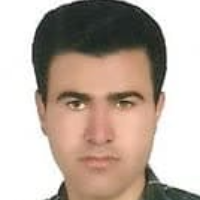Investigating the Effect of Islamic Leadership on Deviant Behaviors in the Workplace through Islamic Work Ethic and Social Capital (Case Study: Islamic Azad University, Isfahan Branch (Khorasgan))
The aim of this study was to determine the effect of Islamic leadership on deviant behaviors in the workplace through Islamic work ethic and social capital (case study of Islamic Azad University, Isfahan Branch (Khorasgan)). The present study was applied in terms of purpose and in terms of how to collect descriptive information of the correlation type. The statistical population of the present study consisted of all employees working in Islamic Azad University, Isfahan Branch, 1000, and 287 people were selected through Cochran's sampling formula as a sample. Ugansula (2011), (Bennett and Robinson (2000) Standard Deviation Behavior Questionnaire and Nahapitogoshal Social Capital Questionnaire, (1998), and Ali's (1988) standard work-ethics standard questionnaire validated questionnaires based on content validity. , Formal and structural were examined and after the necessary narrative terms, the validity of the questionnaires was estimated and analyzed by Cronbach's alpha method of 0.93, 0.91, 0.91 and 0.92, respectively. Data analysis at the inferential level consisted of structural equation modeling. The results showed that Islamic leadership has a negative and significant effect on deviant behaviors in the workplace through Islamic work ethic, which has a coefficient of -0.78, and through social capital has a negative and significant effect on deviant behaviors in the workplace. The coefficient of this effect is -0.67 and also the direct effect of Islamic leadership on deviant behaviors in the work environment is significantly negative. The coefficient of this effect is -0.77.
- حق عضویت دریافتی صرف حمایت از نشریات عضو و نگهداری، تکمیل و توسعه مگیران میشود.
- پرداخت حق اشتراک و دانلود مقالات اجازه بازنشر آن در سایر رسانههای چاپی و دیجیتال را به کاربر نمیدهد.


